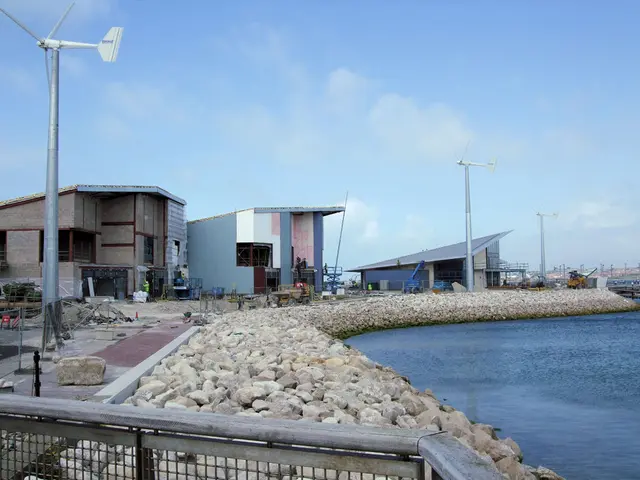Green Jobs Surge, Traditional Industries Struggle: Germany's Transition Tug-of-War
Alteration in German Labour Market Due to Climate Change
Previously optimistic projections of job growth in Germany's environmental sector are waning. The climate transition's casualties have exceeded expectations, with entire industries faltering. The bitter pill? Well-paying fossil fuel jobs are disappearing, only to resurface as lower-wage environmental jobs in other regions.
A Blurred Vision: The Changing Employment Landscape
Last year, the German government was buoyant about the climate transition's potential dual benefits: a forward-thinking energy sector and improved climate protection. Minister of Economics Robert Habeck (Greens) had predicted a "golden age" of employment, while Chancellor Olaf Scholz spoke of a new "economic miracle."
But now...
"Wjfmf Fjo{fmtdijdltbmf" (Translation: "The win-win situation" in German)
The Clash for Capital: Investors' Nervous Pulse
The struggle for employment in older industries is alarming investors. Here's what's going down:
A Sea of Green: The Rise of Renewables and Green Jobs
Aiming to cover 80% of its electricity consumption with renewable energies by 2030, Germany's environmental sector is blooming. Green job openings, particularly in renewable energies and energy infrastructure development, have dramatically increased[4]. Both domestic and international professionals with specialized qualifications are finding opportunities in this sector.
Old Iron Bends: The Struggle Faced by Traditional Industries
Challenges faced by traditional sectors like construction and transport, in meeting emissions targets, cast a shadow over future job stability[2]. The shift towards green technologies may impact employments in these sectors.
Balancing Act: Navigating Economic Challenges
The switch to climate-friendly policies can lead to job losses in sectors resistant to change. This displacement can be detrimental, particularly for low-skilled and migrant workers[5].
The Tipping Point: A Teetering Employment Trend
While the environmental sector grows, traditional industries face headwinds. Germany aims to recruit 90,000 skilled workers annually to mitigate job displacement[3]. Yet, experts urge support for vulnerable groups such as low-skilled and migrant workers to ensure a smooth transition into greener roles[5].
The Attraction and Repulsion: A Tug-of-War for Investor Sentiment
Germany's strong climate ambitions and the promising green sector offer investment opportunities in infrastructure, technology, and skilled labor[2]. However, concerns about policy stability and the challenges of balancing economic recovery with climate goals may affect investor confidence[2].
Can Germany wade through this turbulent employment tide? That's the million-dollar question.
- The optimism about employment growth in Germany's environmental sector, once buoyant, is now waning, as the climate transition's casualties have exceeded expectations and entire industries are faltering.
- In contrast, the environmental sector, particularly in renewable energies and energy infrastructure development, is blooming, with numerous green job openings attracting both domestic and international professionals.
- Traditional sectors like construction and transport, on the other hand, are struggling to meet emissions targets, raising questions about future job stability in these sectors amid the shift towards green technologies.
- The switch to climate-friendly policies can lead to job losses in sectors resistant to change, posing a significant challenge, especially for low-skilled and migrant workers, who need support to effectively transition into greener roles.
- Germany's strong climate ambitions, promising green sector, and investment opportunities in infrastructure and technology could attract investors. However, concerns about policy stability and balancing economic recovery with climate goals may affect investor confidence, making Germany's ability to navigate through this turbulent employment tide a significant challenge.








